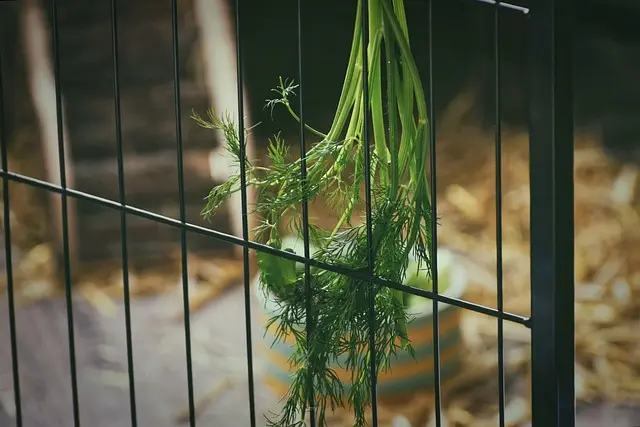Cultivating kratom plants is not just an agricultural endeavor but also a profound method for enhancing mental resilience. This practice requires diligence, attention to detail, and the patience to nurture the plants through various growth stages—skills that parallel the development of psychological strength. The challenges faced in the cultivation process, such as adapting to environmental changes and managing pests, mirror real-life obstacles, teaching problem-solving and adaptability, key components for mental endurance. By engaging with kratom plants, one can embrace a consistent self-care routine that includes both physical care of the plants and mental exercises, reinforcing resilience. This symbiotic relationship between horticulture and personal development underscores the potential benefits of growing kratom plants for those seeking to improve their mental fortitude. The process of growing kratom plants thus becomes a metaphor for personal growth, integrating practical knowledge about soil pH, humidity, and light exposure with the cultivation of one's inner strength, preparing individuals for life's inevitable challenges through mindfulness and discipline.
Embarking on the journey of cultivating kratom plants offers a unique platform to foster mental toughness. This article delves into the symbiotic relationship between the disciplined practice of growing these botanicals and the development of psychological resilience. As we explore “Cultivating Resilience: Integrating Mental Toughness Strategies with Kratom Plant Cultivation,” readers will discover how the meticulous care required for kratom’s optimal growth can enhance one’s ability to cope with stress, overcome challenges, and maintain focus. In “The Symbiosis of Discipline and Agriculture: Applying Mental Toughness Principles to Growing Kratom Plants,” we examine the parallels between nurturing kratom plants and cultivating a robust mental framework. Finally, in “Strategic Growth: Leveraging Kratom Cultivation for Enhanced Mental Fortitude and Mindfulness Practices,” insights are provided on how this process can elevate mindfulness and mental stamina. This article stands at the intersection of agriculture and mental conditioning, offering a compelling argument for the role of kratom cultivation in enhancing mental fortitude.
- Cultivating Resilience: Integrating Mental Toughness Strategies with Kratom Plant Cultivation
- The Symbiosis of Discipline and Agriculture: Applying Mental Toughness Principles to Growing Kratom Plants
- Strategic Growth: Leveraging Kratom Cultivation for Enhanced Mental Fortitude and Mindfulness Practices
Cultivating Resilience: Integrating Mental Toughness Strategies with Kratom Plant Cultivation

Engaging in the cultivation of kratom plants can be a powerful tool for developing mental toughness. The process of nurturing these plants from seedlings to mature specimens requires patience, discipline, and an unwavering commitment—qualities that are integral to mental resilience. As kratom growers invest time in understanding the intricacies of soil pH, optimal sunlight exposure, and watering schedules, they simultaneously train their minds to overcome challenges with a calm and focused approach. The setbacks inherent in plant cultivation, such as unexpected environmental changes or pest infestations, become learning opportunities that enhance problem-solving skills and adaptability—key components of mental fortitude. By adopting the same resilient mindset used in cultivating kratom plants, individuals can effectively prepare themselves to handle life’s adversities with poise and determination.
Furthermore, the act of growing kratom plants can serve as a metaphor for personal growth. Just as a plant’s health is reflected in its vibrant leaves and robust stature, one’s mental toughness manifests through the ability to maintain focus and purpose amidst adversity. The commitment to maintaining a healthy kratom garden can inspire a consistent self-care regimen that includes mental exercises, such as mindfulness and positive affirmations, further reinforcing one’s psychological strength. In this symbiotic relationship between gardening and personal development, the cultivation of kratom plants becomes a gateway to enhancing mental resilience, enabling individuals to face life’s challenges with a composed and steadfast demeanor.
The Symbiosis of Discipline and Agriculture: Applying Mental Toughness Principles to Growing Kratom Plants

Cultivating kratom plants demands a blend of patience, precision, and mental fortitude. The process of growing kratom is not merely an agricultural endeavor but also a reflection of the grower’s inner resilience and discipline. Mental toughness in this context involves a deep understanding of the plant’s environmental requirements and the ability to adapt to challenges that arise. Just as kratom thrives under consistent care and controlled conditions, so too does one’s mental fortitude flourish with regular application of disciplined routines and focused attention. The symbiosis between the cultivator’s mindset and the well-being of the kratom plants is profound. By maintaining a regimented approach to the growth process—monitoring soil pH, controlling humidity, and ensuring optimal light exposure—growers can mirror the principles of mental toughness, which emphasize consistency, attentiveness, and adaptability in the face of adversity. This synergy not only leads to robust, healthy kratom plants but also fosters a cultivator’s mental strength, preparing them for the various trials and tribulations that come with nurturing these unique and valuable botanicals.
Strategic Growth: Leveraging Kratom Cultivation for Enhanced Mental Fortitude and Mindfulness Practices

Integrating kratom cultivation into mental toughness training can be a multifaceted approach to enhancing both mental fortitude and mindfulness. Cultivating kratom plants requires careful attention to detail, patience, and resilience, all of which are components of mental toughness. As you learn the intricacies of growing kratom, from soil preparation to harvesting, these tasks can become a form of moving meditation, fostering mindfulness. The process of nurturing kratom plants demands consistent care, making it an excellent practice for developing discipline and concentration. This disciplined mindfulness has a ripple effect, improving one’s mental state, which is pivotal for maintaining focus and resilience in the face of adversity. Furthermore, engaging with nature through kratom cultivation can offer a sense of connection and grounding, which are essential for cultivating a clear and stable mind. The act of tending to these plants becomes a metaphor for personal growth, as one learns to adapt, problem-solvet, and remain present, much like the approach required to build mental toughness. Consequently, incorporating kratom cultivation into a regimen aimed at enhancing mental fortitude can be a powerful strategy, providing both practical skills in plant care and profound insights into the nature of mindfulness and mental resilience.
In concluding our exploration of mental toughness, it’s clear that the cultivation of kratom plants offers a unique and effective avenue for enhancing one’s resilience. By applying the principles of mental toughness to the discipline required in growing kratom, individuals can achieve a harmonious blend of mindfulness and fortitude. The symbiotic relationship between the farmer and the kratom plant underscores the potential for personal growth and the development of mental stamina. As one tends to the needs of these plants, they too nurture their own capacity for withstanding challenges, fostering a focused and steadfast mindset. This holistic approach to mental training through agriculture not only provides practical skills in kratom cultivation but also cultivates an inner strength that can be applied across various aspects of life.






